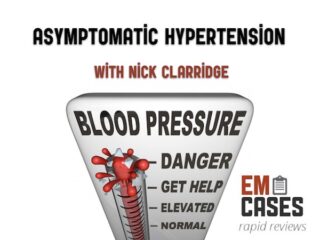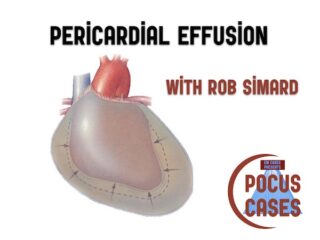EM Cases emergency medicine education podcast
Ep 118 Trauma – The First and Last 15 Minutes Part 1
In this part 1 of Trauma - The First and Last 15 Minutes, we answer questions such as: how should we best prepare our team, our gear and ourselves for the trauma patient? How does resequencing the initial trauma resuscitation save lives? How can we most readily identify occult shock, the silent killer in trauma? What are 7 actions to consider in the first 15 minutes of resuscitation? How can the concepts of "controlled resuscitation" and "resuscitation intensity" help us decide resuscitation targets and when to activate a massive transfusion protocol? and many more...










